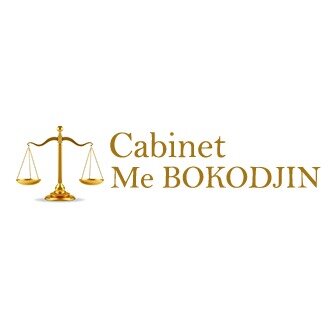Best Adoption Lawyers in Togo
Share your needs with us, get contacted by law firms.
Free. Takes 2 min.
Free Guide to Hiring a Family Lawyer
Or refine your search by selecting a city:
List of the best lawyers in Togo
About Adoption Law in Togo
Adoption in Togo is regulated by the government to ensure the protection and well-being of the adopted child. The process involves legal procedures that must be followed to finalize an adoption. It is important to seek legal advice to understand the requirements and obligations associated with adoption in Togo.
Why You May Need a Lawyer
You may need a lawyer for adoption in Togo if you are facing challenges with the adoption process, dealing with legal issues related to adoption, or need assistance navigating the complex legal system. A lawyer can provide guidance, support, and representation to help you successfully complete the adoption process.
Local Laws Overview
In Togo, adoption is governed by the Family Code. The Family Code outlines the legal requirements for adoption, including eligibility criteria for adoptive parents, consent procedures, and the court process for finalizing adoptions. It is important to understand these laws to ensure compliance and a smooth adoption process.
Frequently Asked Questions
1. Can foreigners adopt in Togo?
Yes, foreigners can adopt in Togo, but they must meet certain eligibility criteria and follow specific procedures outlined by the Family Code.
2. What are the requirements to adopt in Togo?
Applicants must be at least 25 years old and at least 15 years older than the child they wish to adopt. They must be of sound mind and have the financial means to care for the child.
3. How long does the adoption process take in Togo?
The adoption process in Togo can vary in length depending on various factors, but it typically takes several months to complete.
4. Do I need to attend court hearings during the adoption process?
Yes, adoptive parents are required to attend court hearings as part of the adoption process in Togo.
5. Can I adopt a child of a different ethnicity in Togo?
Yes, transracial adoptions are permitted in Togo, but consideration is given to the best interests of the child.
6. Is it possible to reverse an adoption in Togo?
While it is difficult to reverse an adoption in Togo, there are legal procedures that allow for the annulment of an adoption under certain circumstances.
7. Are there any restrictions on who can adopt in Togo?
Adoptive parents must meet the eligibility criteria outlined in the Family Code, and certain restrictions may apply based on age, marital status, and other factors.
8. How much does it cost to adopt in Togo?
The cost of adoption in Togo can vary depending on the circumstances of the adoption, legal fees, and other associated costs. It is recommended to consult with a lawyer for a better understanding of the costs involved.
9. Can single individuals adopt in Togo?
Single individuals can adopt in Togo, but they must meet the eligibility requirements set forth in the Family Code.
10. What post-adoption support services are available in Togo?
There are various support services available in Togo to assist adoptive families with the transition and adjustment after the adoption is finalized. These services may include counseling, education, and resources for adoptive parents and children.
Additional Resources
For more information and assistance with adoption in Togo, you can contact the Ministry of Social Action, Promotion of Women and Literacy, or consult with local adoption agencies and legal professionals specializing in adoption law.
Next Steps
If you require legal assistance with adoption in Togo, it is advisable to seek the guidance of a qualified lawyer who can provide personalized advice and support throughout the adoption process. Be sure to gather all relevant documents and information related to the adoption to help facilitate the legal proceedings.
Lawzana helps you find the best lawyers and law firms in Togo through a curated and pre-screened list of qualified legal professionals. Our platform offers rankings and detailed profiles of attorneys and law firms, allowing you to compare based on practice areas, including Adoption, experience, and client feedback.
Each profile includes a description of the firm's areas of practice, client reviews, team members and partners, year of establishment, spoken languages, office locations, contact information, social media presence, and any published articles or resources. Most firms on our platform speak English and are experienced in both local and international legal matters.
Get a quote from top-rated law firms in Togo — quickly, securely, and without unnecessary hassle.
Disclaimer:
The information provided on this page is for general informational purposes only and does not constitute legal advice. While we strive to ensure the accuracy and relevance of the content, legal information may change over time, and interpretations of the law can vary. You should always consult with a qualified legal professional for advice specific to your situation.
We disclaim all liability for actions taken or not taken based on the content of this page. If you believe any information is incorrect or outdated, please contact us, and we will review and update it where appropriate.
Browse adoption law firms by city in Togo
Refine your search by selecting a city.









